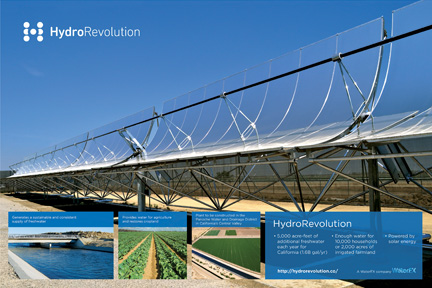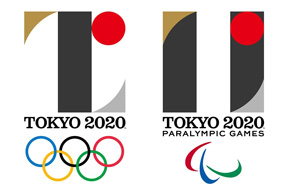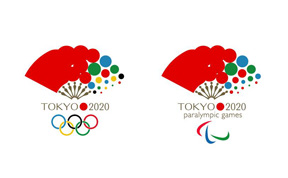Fast Forward
The Water Cooler
A Study In Taste
If you or any of your co-workers are really into culinary creativity, you’ll appreciate a first-of-its-kind consumer study that delves into the behaviors and motivations of foodies around the world. Sopexa, a global agency for food, beverage and lifestyle marketing, profiled modern foodies in the U.S. and around the world to learn their preferences and epicurean influences, as well as how they interact with products and in the digital sphere.
Among the study’s highlights:
Foodies are becoming more selective, experimenting on their own rather than dining out. They embrace the role of house-chef—93 percent cook daily for themselves, and 75 percent cook at home several times a week.
While foodies search online for new products and recipes, they prefer to buy from grocery stores (88 percent) or from local producers (52 percent). Bottom line: foodies want to see, smell and taste products before they use them.
Sopexa hopes the results will help marketers develop innovative ways to appeal to this unique group of consumers. Benjamin Bourinat is director of public relations and social media at Sopexa USA, and he advises marketers and retailers to become an integral part of foodies’ creative process “by developing recognition programs in line with foodies’ time spent on searching, cooking and bragging.”
Bourinat also says foodies aren’t likely to be influenced by discounts, contests or games; rather, they respond to messages that emphasize product origin, exoticism, nutrition and role in self-improvement.
Five Minutes With Arry Yu, CEO and Co-Founder of GiftStarter
Group gifting is a great way to give friends and co-workers—even family members—meaningful, cherished gifts that otherwise might break a single giver’s budget. But coordinating the fundraising, shopping and delivery can be a tedious and sometimes convoluted process. That’s why Arry Yu and Christie Gettler founded the retail group-gifting website GiftStarter.
Through GiftStarter, Gift Champions (that’s GiftStarter talk for the person who selects a gift) launch a campaign on the site and invite contributors to purchase a “piece” of the retail product. Contributors can include photos and messages with their donations, which are sent along with the gift to the recipient. While individual gifts are not customizable, GiftStarter creates a handcrafted card from contributors’ messages and sends it along with the gift to the recipient.
PPB spoke with Yu about the inspiration for the company’s model, and she also shared advice for taking the first step in launching an innovative product or service.
PPB: What was the driving inspiration for GiftStarter?
Yu: The driving inspiration for GiftStarter comes from connecting the market movements from the past decade: the rise of social media, crowdfunding, environmental and social awareness, and the ubiquitous use of digital commerce across the globe.
Social commerce has been a moving target for several years, and it may still seem like an ambiguous, unicorn-like concept to many. Countless approaches and schools of thought have emerged, yet not one example stands out as transforming commerce or filling any meaningful gaps. GiftStarter is bringing a fresh approach to the experience of giving, receiving and fulfilling amazing gifts online, where the digital interactions are with real people delivering joy instead of just transacting in shopping carts.
PPB: How is GiftStarter different from other group purchasing experiences?
Yu: Most services and sites that support group purchases focus on part of the end-to-end group purchasing experience; in other words, they will aggregate the funds or money from various people into one big fund to deliver a monetary “gift” to a recipient, similar to crowdfunding.
GiftStarter takes it all the way to the very end of the gifting experience, from aggregating the funds from people, to actually ensuring the product is purchased and shipped, to providing a meaningful group card and giving the recipient an easy way to say “thank you” to everyone who pitched in.
PPB: What avenues did you take to secure funding and other resources?
Yu: We won Seattle ReDesign, a Startup Weekend hackathon, so we decided to take advantage of everything the prizes afforded us to validate the business. We met several local startup experts—Rebecca Lovell, the startup liaison for the city of Seattle; Andy Sack, an investor who also ran TechStars and Founders Coop; Dave Parker, who runs a pre-accelerator called Next; and Enrique Godreau, co-founder of 9Mile Labs. We joined the 9Mile Labs accelerator a couple months later.
Once we built a minimum viable experience for GiftStarter, we pursued funds from local angel investors to help us on-board over 1,000 paying customers for further validation, to work on product enhancements and to nail down our product’s market fit.
PPB: How do retailers partner with GiftStarter to offer their products to your site users?
Yu: They can partner with GiftStarter in multiple ways, mainly to use our platform to enhance their customers’ experiences to afford better gifts. We can take a product feed (10,000 or more products) and add it to our search experience. We can also create a curated “storefront” on GiftStarter for a retailer with their giftable products on that page. Additionally, we can provide a quick-button widget that allows customers on the retailer’s site to buy any gift with family and friends.
PPB: How does founding and running a company like GiftStarter allow you to strike a work-life balance?
Yu: For us, the founders, the job is a major part of the work, which is a major part of our personal life’s work. We were able to design the business in a way that creates an ecosystem that adds value to our customers, our employees, and our partners. One of the things we know is that starting a company from scratch requires a person to have their own personal foundations in place first. For us, it takes a village of support to keep “balance”—the support of parents, siblings, friends, communities, and most importantly, the full support of a spouse/significant other.
Those who work with GiftStarter know that this is a passion business—passion that grows from enabling human interactions, communal giving and communities to be created from a person’s own circle of family and friends. We believe in holacracy and in prioritizing work that creates/adds value to the customer. There are no managers here, and everyone on the team is encouraged to work freely on projects they are most compelled to work on. Everyone is responsible for bringing their brains, their own expertise and skills to what they feel GiftStarter needs at any given point—always creating value for our customers.
PPB: What advice would you give others who believe they have a great idea for a product or business solution, but don’t know the first steps to take?
Yu: One of the first things we did was think about and document the following:
1. What kind of company do you want to build (or not build) for the next 10 years or more?
2. Do people actually need your product or business solution, and how have you validated it?
3. What kind of business or marketplace will you be entering?
Have a clear idea and words to speak intelligently about all of the above. But above all else, listen. Look for advice that opposes your great idea. Look for customers who will tell you what’s wrong with your idea. That brutal honesty is the difference between an idea and a business that can actually grow.
Market Share
Marketing Skills For Water
Since when does water need a marketing plan? Since California has suffered through several years of crippling drought—according to Mercury360®, anyway. The San Francisco-based social media marketing firm is working with WaterFX to generate publicity and educate consumers about the company’s work using solar desalination to generate freshwater supplies for farmers in the state’s Central Valley.
WaterFX’s latest project, HydroRevolution, aims to raise money for what will be California’s first commercial solar desalination plant. To build support for the project, Mercury360® has launched what is expected to be one of the 10 largest investment crowdfunding campaigns on record. WaterFX announced a direct public offering (DPO) in August to encourage Californians to help fund the construction of the plant—marking the first time a DPO has been used for a desalination project.
AD-itives
That Logo Looks Familiar …
Plagiarism isn’t a crime unto words alone, something Olympic Games organizers in Tokyo discovered late this summer when the designer of a Belgian theater logo, Olivier Debie, accused Tokyo designer Kenjiro Sano of copying his design. Though Sano claims his work was original, Tokyo 2020 Olympics officials have since sent the design back to the drawing board.
After news of the design debacle entered social media, Japanese illustrator KanKan created a logo incorporating Olympic colors into the image of a traditional hand fan. “The folding fan symbolizes good omens in the way it spreads out, and the tool has been used to cheer others on since ancient times,” KanKan wrote of the design on his Twitter feed.
“I believe it’s the best design for an Olympic motif and it perfectly captures the Olympic quality of harmony. The theme of ‘Japan (the red suns) being supported by many peoples’ is also represented in its design.”
Bizwords
Synergize
Few business professionals would debate the value of Steven Covey’s 7 Habits of Highly Effective People, but his introduction of the verb ‘synergize’ doesn’t exactly produce synergy among wordsmiths. Making a verb out of a perfectly good noun for the sake of impact often has the opposite effect.
Synergy, as a noun, is more at home in the science community than anywhere else. It describes the cooperative action of two or more parts of the human body; the interaction of elements that produce a total effect greater than the individual elements; and the cooperative action of two or more stimuli.
‘Synergize’ embodies the very essence of office jargon, something even the most effective communicators can fall victim to. If you’re seeking an effective way to add impact to a speech or a statement, the simplest words are often the most powerful. Want to encourage your employees to practice synergy? Tell them to cooperate, collaborate or even conspire.
Brandable
Boosting Brands With Alter Egos
If you know about Peter Parker, Bruce Wayne and Clark Kent, you know about alter egos. But could you argue that the creation of Spiderman, Batman and Superman made their creators more successful as ‘regular guys’? A recent article in Entrepreneur explored the appeal of creating alter egos to boost personal brands, and took note of the benefits that can lead to a big payoff.
It’s an outlet for introverts. If your brand is subtle or soft in its approach to clients, an alter ego lets you explore a wild side. And who knows? This louder, brasher version might open doors to a whole new demographic.
It’s a chance to be unconventional. Do your dream prospects hate mainstream branding? Do they gravitate toward what’s unusual or edgy? An alter ego is a paradox—it screams unconventional.
It lets you create a backstory. So your current brand doesn’t come with a cool story? That’s okay, your brand’s alter ego does. Whatever service you provide or product you sell can be woven into the fabric of the alter ego’s origins to help establish a strong connection with the needs of your clients.







